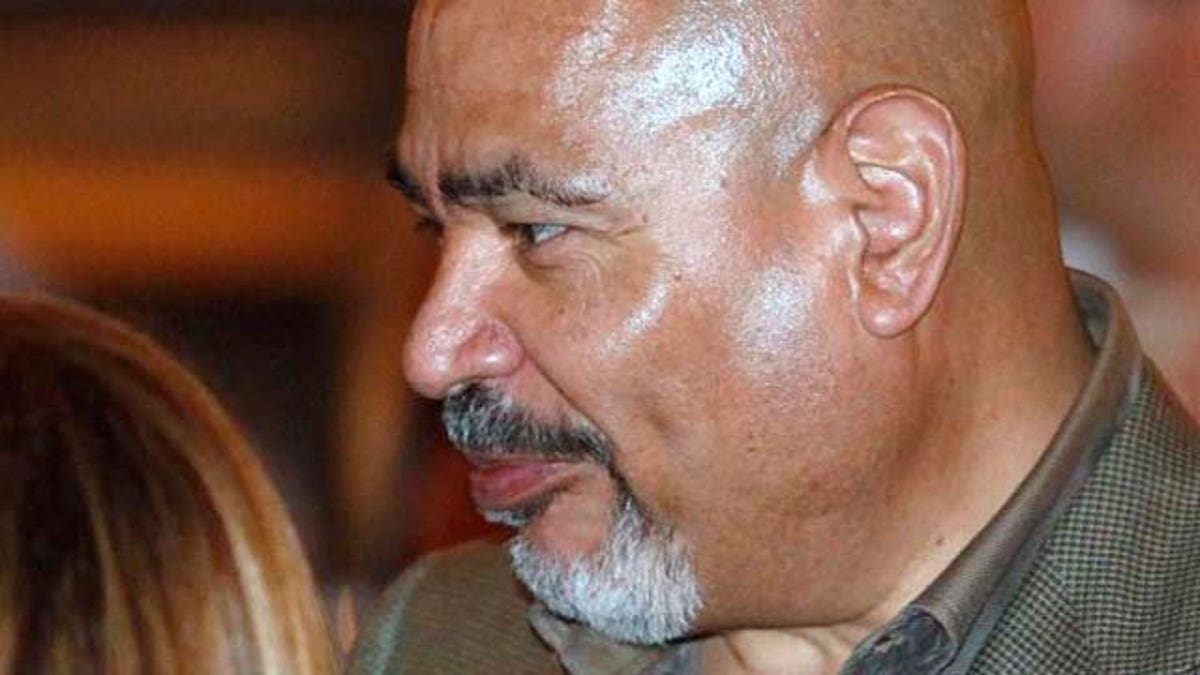
David Cruz (Courtesy David Cruz)
On the heels of the 2011 upfronts, the annual unveiling of TV networks’ Fall season, Spanish-language television networks are touting “Record-Setting Performances” (TELEMUNDO) and “The Only Top 5 Broadcast Network with Audience Growth in Primetime” (UNIVISION).
Meanwhile, Spanish-language radio is now boasting the fastest growing audience in the nation with an estimated 12.5-million listeners tuned in weekly in just five of the largest Hispanic markets in the United States. While this is good news for Spanish network executives, their shareholders and advertising agencies, it does not bode well for an estimated 11-million undocumented immigrants, many of whom are stubbornly clinging to the fantasy notion of one day returning home so why bother to learn English?
Nor does it say much of millions of other Hispanics, including youth, faced with some of the highest rates of English illiteracy in the United States while watching and listening to more Spanish-language media than ever before.
Yet, no one can legitimately blame smart programmers or marketers who are seizing the opportunity to tap into the exploding U.S. Spanish-speaking audience. Nor can you blame Hispanic viewers or listeners themselves who are simply gravitating toward the easier course. Who opt to stay with the language that is culturally familiar and in which it is easier to communicate despite the price the linguistic deficiency is exacting and the likelihood that it will become even costlier in the future.
There is also the price tag to America itself of a growing Hispanic population, now topping 50-million, many of whom are unable to effectively communicate in the language of business, education and the legal system even as Spanish-language media continues to profit by supporting a language divide.
To touch this subject can unleash harsh criticism from individuals and organizations who view any challenge to Spanish-language media as an attack on the Spanish-speaking community itself. However, an honest examination of this issue is critical to assess the future role Hispanics will have in the United States.
An informed, educated, English-conversant population will be far more involved in the national political discourse and be better able to independently decide, how and for whom or what to vote for, rather than rely on the limited number of media sources their language ability enables them to access. Also, they will be more proficient students, employees and participants in America’s communities.
Despite the obvious upside, there is still no compelling mandate for Spanish-language media to change. That mandate can only come from Congress. Corporate greed and the zeal by Spanish-language broadcasters to protect their market share are strong disincentives to encourage English literacy. However, it is in America’s interest to promote English literacy over public airwaves.
According to the State of Spanish Language Media, Annual Report 2010, compiled by the center for Spanish-language media at the University of North Texas, Spanish radio and television are the dominant sources of entertainment and information for millions of Hispanics in the United States today. The report states, “More than 95% of Spanish-dominant Hispanics and more than 93% of English-dominant Hispanics tune in to Spanish-language radio daily.
Also, Hispanics are turning on rather than turning off their TV sets and picking up an English-language tutorial book. In the 2010-2011 season alone, Hispanic families accounted for 40% of all the new television households in the United States, a percentage that translates into 400,000 new households.
It is clear that Spanish-language media is here to stay, much like the millions of Hispanics, documented or not, who now call the United States home. Sadly, for the audience of millions of Spanish-speaking Hispanics, its passive acceptance of this programming array rather than a clamoring for even a minimal amount of informational content in English is denying them a valuable opportunity to be engaged, educated and empowered.
Meanwhile the FCC appears unwilling or unable to persuade Spanish-language media to even consider introducing any level of English-language content. Instead, the FCC pays deference to “Diversity” in media as one of the six goals in its 2006-2011 Strategic Business Plan.
In political-speak, diversity here means giving the appearance of embracing individuals of different cultures who may aid communication between people of different backgrounds and lifestyles, leading to greater knowledge, understanding, and peaceful coexistence. Yet, as long as Spanish-language media refuses to be a participant in the English-learning process, they are simply the profiteers of the linguistic chasm.
America’s elected Congressional representatives who set policy and oversee the Fifth Estate, in this case an 'hacienda', must be urged to consider passage of new legislation simultaneously with the Obama administration’s push for Immigration Reform.
This legislation must again look at the changing landscape of our country and consider one of the cornerstones of the United States legacy; not English only, but English also. Failing to do so will only enable Spanish-language media to keep encouraging monolingual Hispanics into becoming our nation’s new colonists living among us but never achieving the full potential of the American dream.
David Cruz is a multiple Emmy-Award winning Broadcast Network Television and Radio Journalist who anchors a daily, bilingual news talk radio program in Southern California. He also produces news and public affairs programming content for broadcast, online and mobile platforms in partnership with Schofield Media Group, a global business-to-business publishing company. For more information: davidcruz@brightflashmedia.com.
Follow us on twitter.com/foxnewslatino
Like us at facebook.com/foxnewslatino




